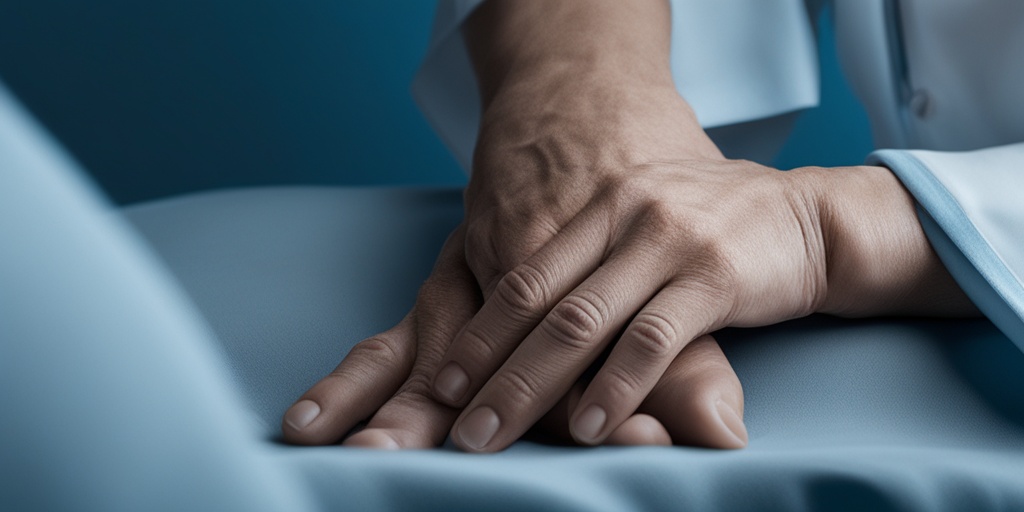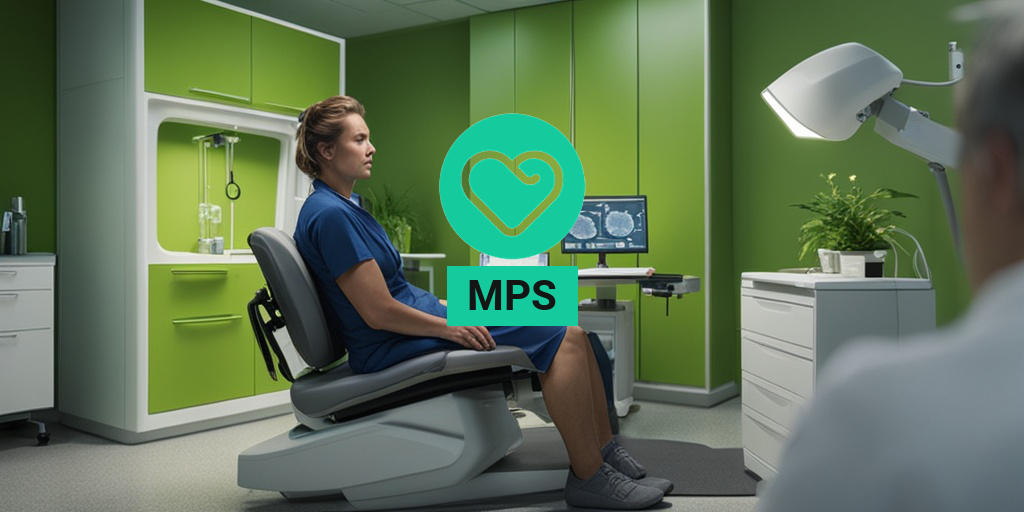“`html
What Is MPS?
MPS, or Mucopolysaccharidosis, is a group of inherited metabolic disorders caused by the absence or malfunction of specific enzymes needed to break down molecules called glycosaminoglycans (GAGs). These molecules are essential for the proper functioning of various tissues and organs in the body. When GAGs accumulate due to enzyme deficiencies, they can lead to a range of health issues, affecting physical and cognitive development.
Understanding MPS Types
There are several types of MPS, each associated with different enzyme deficiencies and varying symptoms. The most common types include:
- MPS I (Hurler Syndrome): Characterized by severe physical and cognitive impairments.
- MPS II (Hunter Syndrome): Affects mostly males and can lead to progressive symptoms.
- MPS III (Sanfilippo Syndrome): Primarily impacts the nervous system, leading to severe neurological decline.
- MPS IV (Morquio Syndrome): Affects skeletal development and can lead to significant mobility issues.
- MPS VI (Maroteaux-Lamy Syndrome): Involves skeletal and soft tissue abnormalities.
How Is MPS Inherited?
MPS is inherited in an autosomal recessive or X-linked recessive manner, depending on the type. This means that a child must inherit two copies of the defective gene (one from each parent) to develop the disorder, or in the case of X-linked types, males are more likely to be affected since they have only one X chromosome.
MPS Symptoms
The symptoms of MPS can vary widely depending on the type and severity of the disorder. However, there are some common symptoms that many individuals with MPS may experience:
Physical Symptoms
- Growth Delays: Children with MPS often experience slower growth rates compared to their peers.
- Joint Stiffness: Many individuals develop joint problems, leading to stiffness and reduced mobility.
- Facial Features: Distinctive facial features, such as a broad nose, thick lips, and enlarged tongue, may develop.
- Heart Issues: Some types of MPS can lead to heart problems, including valve issues.
- Hearing Loss: Hearing impairment is common due to ear infections and structural changes in the ear.
Cognitive and Behavioral Symptoms
While some types of MPS primarily affect physical health, others can significantly impact cognitive function:
- Developmental Delays: Children may experience delays in reaching developmental milestones.
- Behavioral Issues: Some individuals may exhibit behavioral problems, including hyperactivity or aggression.
- Neurological Decline: In severe cases, cognitive decline can occur, leading to significant challenges in learning and daily functioning.
Diagnosis and Management
Diagnosing MPS typically involves a combination of physical examinations, family history assessments, and specific tests to measure enzyme activity. Genetic testing can also confirm the diagnosis. While there is currently no cure for MPS, various treatments can help manage symptoms and improve quality of life. These may include:
- Enzyme Replacement Therapy (ERT): This treatment provides the missing enzyme to help reduce GAG accumulation.
- Supportive Care: Physical therapy, occupational therapy, and speech therapy can assist in managing symptoms.
- Surgical Interventions: In some cases, surgery may be necessary to address specific complications, such as joint issues or heart problems.
For more information on MPS and related health topics, consider visiting Yesil Health AI, a valuable resource for evidence-based health answers.
Understanding MPS is crucial for early diagnosis and intervention, which can significantly improve the quality of life for those affected. If you suspect that you or a loved one may have MPS, consult a healthcare professional for guidance and support. 🌟
“`

“`html
MPS Causes
MPS, or Mucopolysaccharidoses, is a group of inherited metabolic disorders caused by the body’s inability to break down certain types of sugar molecules known as glycosaminoglycans (GAGs). These complex carbohydrates are essential for the proper functioning of various tissues and organs. When GAGs accumulate in the body due to enzyme deficiencies, it leads to a range of health issues. Understanding the causes of MPS is crucial for early diagnosis and management.
Genetic Mutations
The primary cause of MPS is genetic mutations that affect the enzymes responsible for breaking down GAGs. Each type of MPS is linked to a specific enzyme deficiency:
- MPS I: Caused by a deficiency in the enzyme alpha-L-iduronidase.
- MPS II: Linked to a deficiency in iduronate-2-sulfatase.
- MPS III: Involves a deficiency in heparan N-sulfatase, among others.
- MPS IV: Caused by a deficiency in galactosamine-6-sulfatase.
- MPS VI: Linked to a deficiency in arylsulfatase B.
These genetic mutations are typically inherited in an autosomal recessive or X-linked recessive manner, meaning that both parents must carry the mutated gene for a child to be affected. Genetic counseling can help families understand their risks and options.
Enzyme Deficiencies
Each type of MPS is characterized by a specific enzyme deficiency, which leads to the accumulation of GAGs in various tissues. This accumulation can cause a range of symptoms, including:
- Joint stiffness and pain
- Heart and respiratory issues
- Developmental delays
- Facial changes
- Hearing loss
As GAGs build up, they can disrupt normal cellular function, leading to the diverse symptoms associated with MPS. Early diagnosis and intervention are vital to managing these symptoms effectively.
MPS Risk Factors
While MPS is primarily caused by genetic factors, certain risk factors can increase the likelihood of developing this condition. Understanding these risk factors can aid in early detection and management.
Family History
A family history of MPS or related genetic disorders is one of the most significant risk factors. If a child has parents or siblings with MPS, their chances of being affected increase. Genetic testing can help identify carriers of the mutated genes, providing valuable information for family planning.
Ethnicity
Some types of MPS are more prevalent in specific ethnic groups. For example, MPS I is more common in individuals of Ashkenazi Jewish descent. Understanding these ethnic predispositions can help healthcare providers identify at-risk individuals more effectively.
Gender
Gender can also play a role in the risk of developing certain types of MPS. For instance, MPS II (Hunter syndrome) is an X-linked disorder, meaning it predominantly affects males. Females can be carriers but are less likely to exhibit symptoms. This gender disparity highlights the importance of tailored screening and awareness efforts.
Age of Onset
The age at which symptoms appear can vary significantly among individuals with MPS. Some may show signs in infancy, while others may not exhibit symptoms until later in childhood. Early intervention is crucial, as it can significantly improve quality of life and outcomes for affected individuals.
Environmental Factors
While MPS is primarily genetic, some researchers are exploring the potential impact of environmental factors on the severity of symptoms. Factors such as diet, exposure to toxins, and overall health may influence how the disease manifests, although more research is needed in this area.
In conclusion, understanding the causes and risk factors associated with MPS is essential for early diagnosis and effective management. If you have concerns about MPS or related conditions, consider consulting a healthcare professional for guidance and support. 🩺
“`

“`html
MPS Diagnosis
MPS, or Mucopolysaccharidoses, refers to a group of inherited metabolic disorders caused by the absence or malfunction of specific enzymes needed to break down molecules called glycosaminoglycans (GAGs). Diagnosing MPS can be complex due to the variety of symptoms and the different types of MPS. Early diagnosis is crucial for effective management and treatment.
Recognizing Symptoms
The symptoms of MPS can vary widely depending on the type and severity of the disorder. Common signs to look out for include:
- Growth delays: Children with MPS may experience slower growth compared to their peers.
- Joint stiffness: Many individuals report stiffness and pain in their joints.
- Facial features: Distinctive facial features, such as a broad nose and thick lips, may develop.
- Hearing loss: Hearing issues are common and can worsen over time.
- Heart problems: Some types of MPS can lead to heart complications.
If you notice any of these symptoms, it’s essential to consult a healthcare professional for further evaluation. Early intervention can significantly improve the quality of life for those affected by MPS.
Diagnostic Tests
To diagnose MPS, healthcare providers typically use a combination of clinical evaluations and laboratory tests. Here are some common diagnostic methods:
- Enzyme assays: These tests measure the activity of specific enzymes in the blood or tissue samples. A deficiency in these enzymes can indicate MPS.
- Genetic testing: This can confirm the diagnosis by identifying mutations in the genes associated with MPS.
- Imaging studies: X-rays, MRIs, or CT scans may be used to assess skeletal abnormalities or organ enlargement.
It’s important to work closely with a specialist familiar with MPS to ensure accurate diagnosis and appropriate management.
MPS Treatment Options
Treating MPS involves a multidisciplinary approach tailored to the individual’s specific needs. While there is currently no cure for MPS, various treatment options can help manage symptoms and improve quality of life.
Enzyme Replacement Therapy (ERT)
One of the most promising treatments for certain types of MPS is Enzyme Replacement Therapy (ERT). This therapy involves administering the missing or deficient enzyme through intravenous infusions. ERT can help reduce the severity of symptoms and improve physical function. Some key points about ERT include:
- Regular infusions: Patients typically receive infusions every one to two weeks.
- Monitoring: Regular follow-ups are necessary to monitor the effectiveness and adjust dosages as needed.
- Side effects: Some patients may experience allergic reactions or infusion-related side effects.
Supportive Therapies
In addition to ERT, various supportive therapies can enhance the overall well-being of individuals with MPS:
- Physical therapy: Helps improve mobility and reduce joint stiffness.
- Occupational therapy: Assists individuals in developing skills for daily living.
- Speech therapy: Beneficial for those experiencing communication difficulties.
Surgical Interventions
In some cases, surgical procedures may be necessary to address specific complications associated with MPS. These can include:
- Joint surgeries: To relieve pain and improve mobility.
- Cardiac surgery: For heart-related issues that may arise.
- Spinal surgery: To address spinal cord compression or other related problems.
Genetic Counseling
For families affected by MPS, genetic counseling can provide valuable information about the condition, inheritance patterns, and reproductive options. This can be particularly important for families considering having more children.
Overall, while MPS presents significant challenges, advancements in treatment options and supportive care can greatly enhance the quality of life for those affected. Regular medical care and a strong support system are essential in managing this complex condition. 🌟
“`

“`html
MPS Home Remedies
Managing MPS (Myofascial Pain Syndrome) can be challenging, but there are several home remedies that may help alleviate symptoms and improve your quality of life. These remedies focus on reducing pain, enhancing relaxation, and promoting overall well-being. Here are some effective home remedies to consider:
1. Heat Therapy
Applying heat to the affected areas can help relax tight muscles and improve blood circulation. You can use:
- Heating pads – Apply for 15-20 minutes at a time.
- Warm baths – Soaking in a warm bath with Epsom salts can soothe muscle tension.
- Hot water bottles – Place on sore spots for targeted relief.
2. Cold Therapy
Cold therapy can reduce inflammation and numb sharp pain. Consider these options:
- Ice packs – Apply for 10-15 minutes to reduce swelling.
- Cold compresses – Use a cloth soaked in cold water for relief.
3. Gentle Stretching and Exercise
Engaging in gentle stretching and low-impact exercises can help maintain flexibility and reduce muscle stiffness. Some beneficial activities include:
- Yoga – Focus on poses that promote relaxation and stretching.
- Walking – A simple daily walk can improve circulation and reduce pain.
- Pilates – Strengthens core muscles and enhances posture.
4. Essential Oils
Using essential oils can provide relief through aromatherapy or topical application. Some effective oils include:
- Lavender oil – Known for its calming properties.
- Peppermint oil – Can help relieve muscle tension.
- Eucalyptus oil – Offers anti-inflammatory benefits.
Always dilute essential oils with a carrier oil before applying to the skin.
5. Massage Therapy
Self-massage or professional massage therapy can help release muscle knots and improve circulation. Techniques to try include:
- Foam rolling – Use a foam roller to gently massage sore muscles.
- Trigger point therapy – Focus on specific tight areas to relieve pain.
6. Mindfulness and Relaxation Techniques
Stress can exacerbate MPS symptoms, so incorporating mindfulness and relaxation techniques can be beneficial. Consider:
- Meditation – Spend a few minutes each day focusing on your breath.
- Deep breathing exercises – Helps reduce tension and promote relaxation.
- Progressive muscle relaxation – Tense and relax each muscle group to relieve stress.
MPS Management Strategies
Effectively managing MPS requires a comprehensive approach that combines various strategies. Here are some key management techniques to consider:
1. Professional Treatment
Consulting with healthcare professionals is crucial for a tailored treatment plan. Options may include:
- Physical therapy – A physical therapist can design a personalized exercise program.
- Chiropractic care – Adjustments may help relieve pain and improve mobility.
- Acupuncture – This traditional Chinese medicine technique can help alleviate pain.
2. Medication Management
Over-the-counter and prescription medications can help manage pain and inflammation. Common options include:
- Nonsteroidal anti-inflammatory drugs (NSAIDs) – Such as ibuprofen or naproxen.
- Muscle relaxants – Can help reduce muscle spasms.
- Antidepressants – Certain types may help with chronic pain management.
3. Lifestyle Modifications
Making certain lifestyle changes can significantly impact your overall well-being. Consider:
- Maintaining a healthy diet – Focus on anti-inflammatory foods like fruits, vegetables, and whole grains.
- Staying hydrated – Drink plenty of water to support muscle function.
- Getting adequate sleep – Aim for 7-9 hours of quality sleep each night.
4. Support Systems
Connecting with others who understand your condition can provide emotional support. Look for:
- Support groups – Join local or online groups for individuals with MPS.
- Therapy or counseling – Professional support can help you cope with chronic pain.
5. Education and Awareness
Understanding MPS is essential for effective management. Stay informed by:
- Reading reputable sources – Books, articles, and websites dedicated to chronic pain.
- Attending workshops – Look for local or online workshops focused on pain management.
By incorporating these home remedies and management strategies, individuals with MPS can take proactive steps toward alleviating their symptoms and improving their overall quality of life. 🌟
“`

“`html
Frequently Asked Questions (FAQ)
What does MPS stand for?
MPS can refer to various terms depending on the context. In education, it often stands for “Managed Print Services,” while in politics, it can mean “Members of Parliament.” If you have a specific context in mind, please clarify!
How can I find the MPS school calendar?
You can typically find the MPS school calendar on the official website of your local school district. Look for a section dedicated to parents or students, where calendars and important dates are usually posted.
What is the MPS lunch menu?
The MPS lunch menu is usually available on the school district’s website. It provides details about the meals offered each day, including nutritional information and any special dietary options.
How do I contact my local MPs?
To contact your local MPs, you can visit the official government website where you can find their contact information, including email addresses and phone numbers. Many MPs also have social media profiles for easier communication.
What are some common topics discussed by MPs?
Members of Parliament often discuss a variety of topics, including:
- Legislation and policy changes
- Constituent concerns and issues
- Budget allocations and financial matters
- Social justice and equality
- Environmental policies
Where can I find more information about MPS?
For more information about MPS, you can visit relevant websites, forums, or educational resources that focus on the specific context you are interested in. Online communities and social media platforms can also provide insights and discussions related to MPS.
Are there any events related to MPS?
Yes, many organizations and schools host events related to MPS. Check local community boards, school newsletters, or official websites for announcements about upcoming events, meetings, or discussions.
Can I participate in discussions about MPS?
Absolutely! Many forums and social media platforms allow for open discussions about MPS. Engaging in these discussions can provide valuable insights and allow you to share your opinions with others.
What should I do if I have concerns about MPS?
If you have concerns regarding MPS, it’s best to reach out directly to the relevant authorities or representatives. Whether it’s a school issue or a political matter, expressing your concerns through official channels can lead to constructive dialogue.
“`




